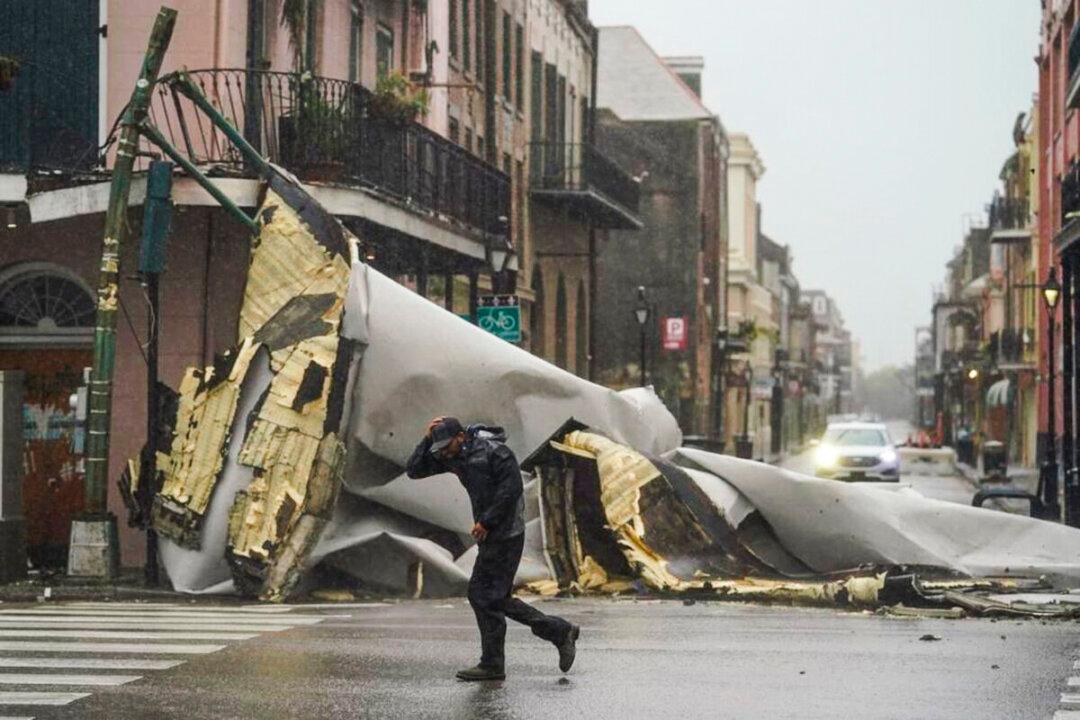Hurricane Ida is ravaging portions of southeastern Louisiana, according to the National Hurricane Center’s (NHC’s) latest update on the evening of Aug. 29, as more than 440,000 customers across the region have lost power.
The hurricane’s northern eyewall made landfall near Port Fourchon, Louisiana, at around 12:50 p.m. ET, according to the NHC. The storm had maximum sustained winds of 150 miles per hour and a minimum central pressure of 930 millibars. It made a second landfall in nearby Galliano.





